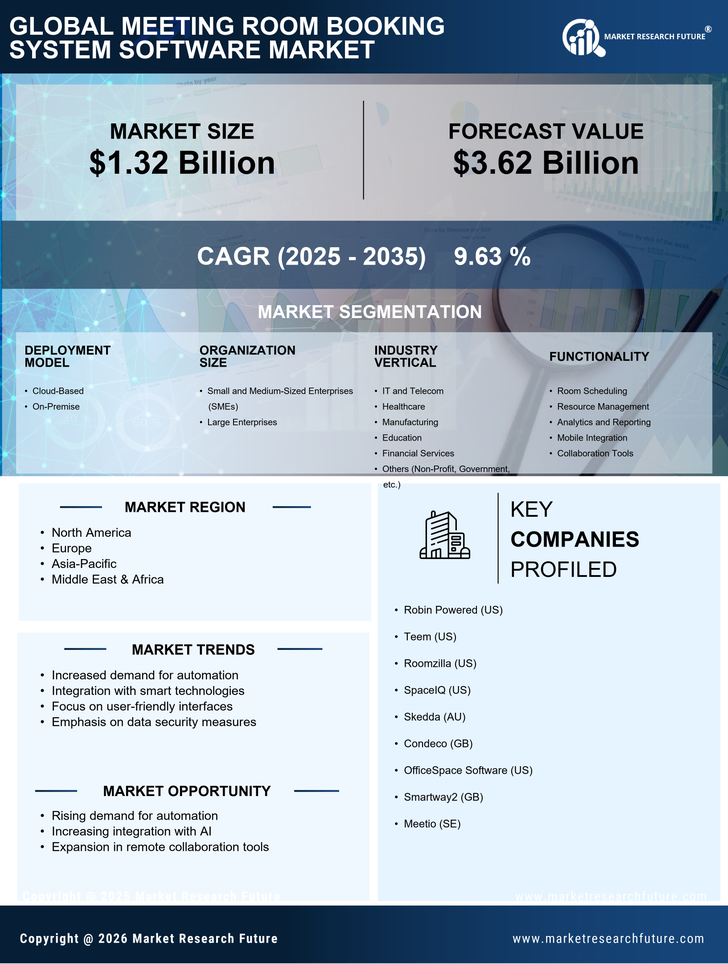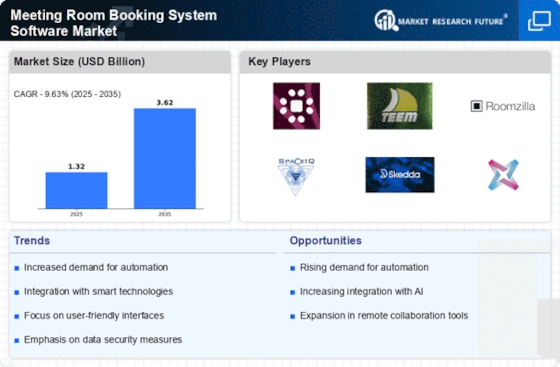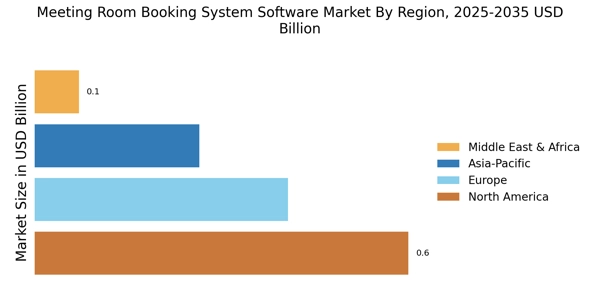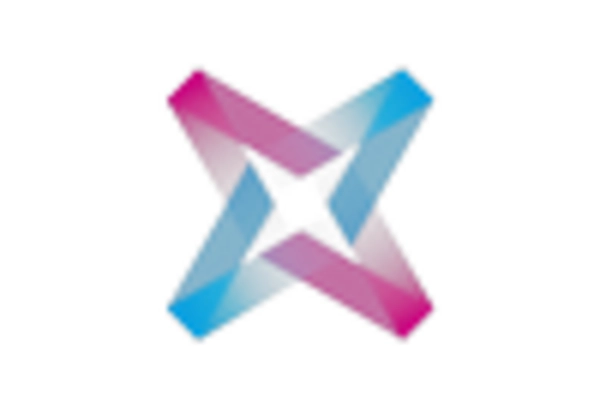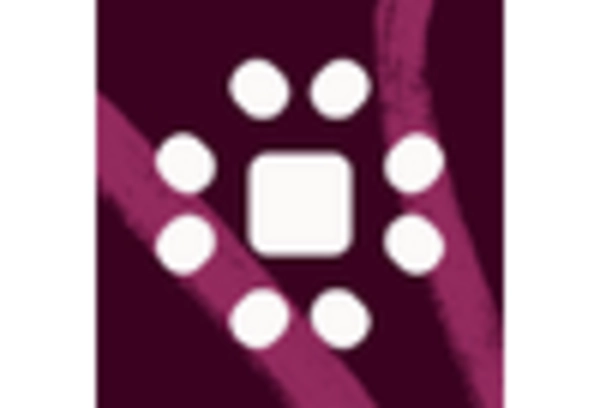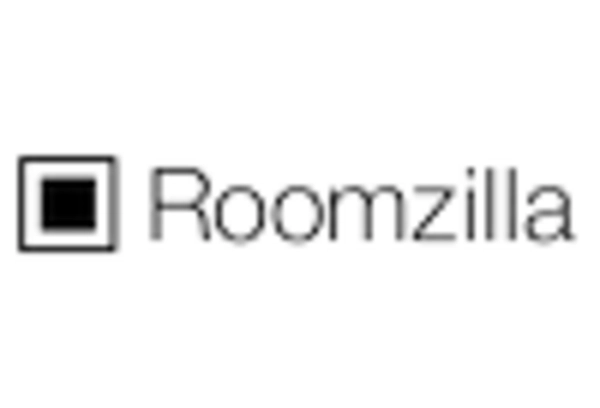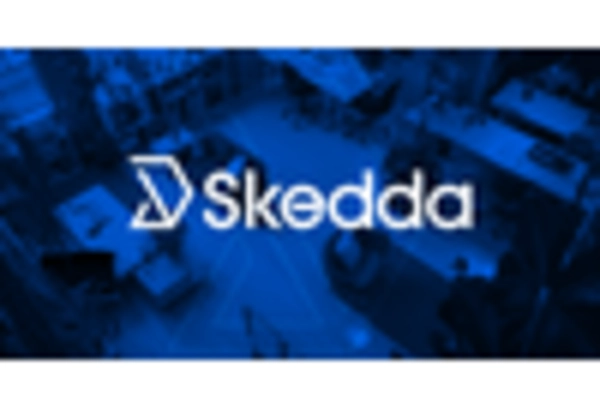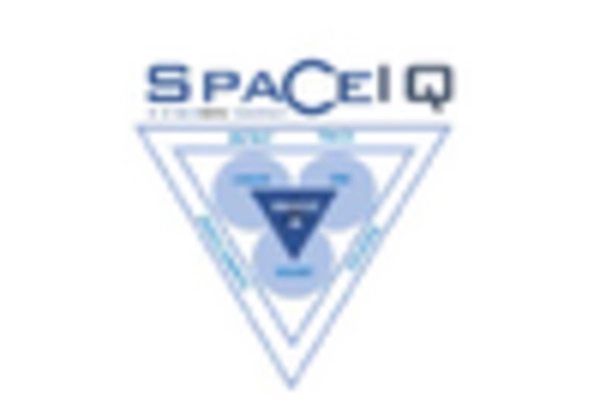Rise of Remote Work Solutions
The rise of remote work solutions is significantly influencing the Meeting Room Booking System Software Market. As more employees work from home or in flexible environments, the need for effective scheduling and resource management tools has intensified. Companies are investing in software that not only facilitates room bookings but also integrates with remote collaboration tools. This trend is underscored by the fact that approximately 70% of organizations are now prioritizing technology that supports remote work. Consequently, software providers that can offer comprehensive solutions that bridge the gap between in-office and remote work are likely to thrive in this evolving market landscape.
Growing Emphasis on Data Analytics
The Meeting Room Booking System Software Market is witnessing a growing emphasis on data analytics as organizations strive to make informed decisions regarding their workspace utilization. By leveraging data analytics, companies can gain insights into meeting room usage patterns, peak booking times, and user preferences. This information is invaluable for optimizing space allocation and improving overall efficiency. Industry expert's indicates that organizations utilizing data-driven insights can enhance their space utilization rates by up to 25%. As a result, software solutions that incorporate robust analytics capabilities are becoming increasingly sought after, allowing businesses to maximize their resources and reduce operational costs.
Integration of Artificial Intelligence
The integration of artificial intelligence (AI) into the Meeting Room Booking System Software Market is transforming how organizations manage their meeting spaces. AI-driven solutions can analyze usage patterns, predict demand, and automate booking processes, thereby enhancing operational efficiency. According to recent studies, AI integration can reduce booking errors by up to 30%, significantly improving user experience. Furthermore, AI can facilitate personalized recommendations for room selection based on past usage, which may lead to increased user satisfaction. As businesses continue to seek ways to streamline operations and reduce costs, the adoption of AI in meeting room booking systems is likely to accelerate, presenting a lucrative opportunity for software developers.
Increased Demand for Flexible Workspaces
The Meeting Room Booking System Software Market is experiencing a notable surge in demand for flexible workspaces. As organizations increasingly adopt hybrid work models, the need for efficient room booking solutions becomes paramount. This shift is reflected in the projected growth of the market, which is expected to reach USD 1.5 billion by 2026. Companies are seeking software that can accommodate fluctuating occupancy rates and diverse workspace configurations. This trend indicates a significant opportunity for software providers to innovate and enhance their offerings, ensuring that they meet the evolving needs of businesses. The ability to seamlessly manage bookings, optimize space utilization, and provide real-time availability is becoming essential in this competitive landscape.
Focus on User Experience and Interface Design
The Meeting Room Booking System Software Market is increasingly focusing on user experience and interface design as a critical driver of adoption. Organizations recognize that intuitive and user-friendly interfaces can significantly enhance employee engagement and satisfaction. Research suggests that systems with superior user experience can lead to a 40% increase in booking efficiency. As a result, software developers are prioritizing design elements that simplify the booking process, reduce friction, and provide seamless navigation. This focus on user-centric design is likely to shape the future of meeting room booking systems, as companies seek to empower their employees with tools that facilitate collaboration and productivity.
